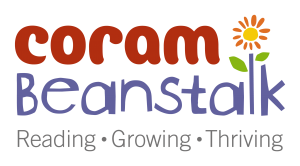Best Foods for Baby Weaning
A Guide to Starting Solids: Best Foods for Baby Weaning
As your baby grows, so does their need for solid foods to complement their milk or formula intake. Weaning your little one onto solid foods is an exciting milestone, but it can also be overwhelming, especially for first-time parents. The transition to solid foods marks an important stage in your baby’s development, laying the foundation for healthy eating habits later in life. To help you navigate this journey, here’s a comprehensive guide to the best foods to start weaning your baby with.
- Pureed Fruits: Start with single-ingredient purees of soft fruits such as bananas, apples, pears, and peaches. These fruits are easy to digest and packed with essential nutrients like vitamins and minerals. Pureeing them ensures a smooth texture that’s gentle on your baby’s developing digestive system.
- Pureed Vegetables: Introduce vegetables gradually, beginning with mild-flavored options like sweet potatoes, carrots, peas, and squash. Steam or boil the vegetables until they’re soft, then blend them into a smooth consistency. Vegetables are rich in vitamins, minerals, and fiber, promoting healthy growth and digestion.
- Iron-Rich Foods: Iron is crucial for your baby’s brain development and overall growth. Introduce iron-rich foods such as pureed meat (chicken, turkey, beef), fortified infant cereals, and mashed beans or lentils. These foods provide a vital nutrient that breastfed babies may need more of as they approach six months of age.
- Baby Cereals: Fortified infant cereals are a convenient option for introducing grains into your baby’s diet. Choose single-grain cereals like rice, oatmeal, or barley, mixed with breast milk, formula, or water to achieve a smooth consistency. Start with a thin consistency and gradually thicken it as your baby becomes more accustomed to solids.
- Soft Cooked Foods: As your baby progresses, you can introduce soft cooked foods that offer different textures and flavors. Examples include well-cooked pasta, soft cheese, scrambled eggs, and finely chopped or mashed fruits and vegetables. Be mindful of any potential choking hazards and ensure foods are cut into small, manageable pieces.
- Finger Foods: Around six to eight months, your baby may start showing interest in self-feeding. Offer bite-sized finger foods such as small pieces of ripe avocado, banana, cooked vegetables, and toast strips. Encourage exploration and independence while closely supervising to prevent choking.
- Yogurt and Cheese: Dairy products like plain yogurt and mild cheese are excellent sources of calcium and protein for your growing baby. Opt for unsweetened, full-fat varieties to provide essential nutrients without added sugars or artificial flavors.
- Allergenic Foods: Introduce allergenic foods like peanuts, eggs, fish, and wheat one at a time, and observe your baby for any adverse reactions. Starting these foods early can help reduce the risk of allergies later in life. Offer small amounts and wait a few days before introducing another allergen.
- Homemade vs. Shop-Bought: While homemade baby food allows you to control the ingredients and textures, store-bought options can be convenient for busy parents. Choose high-quality, organic options with no added sugars, salts, or preservatives. Be sure to check the expiration dates and packaging integrity before feeding your baby.
Weaning your baby onto solid foods is a gradual process that requires patience, experimentation, and plenty of love and encouragement. Remember that every baby is unique, so go at your own pace and trust your instincts as a parent. By offering a variety of nutritious foods and respecting your baby’s cues and preferences, you’ll lay the foundation for a lifetime of healthy eating habits. Enjoy this exciting journey of discovery and growth with your little one!
Join in with our Adventure Babies Sensory Storytelling classes here!
Come and say Hi to other parents on our Adventure Babies community!









